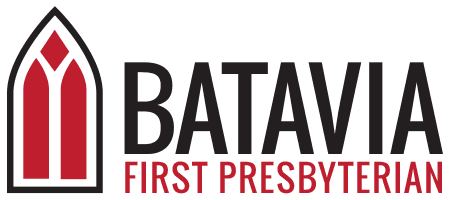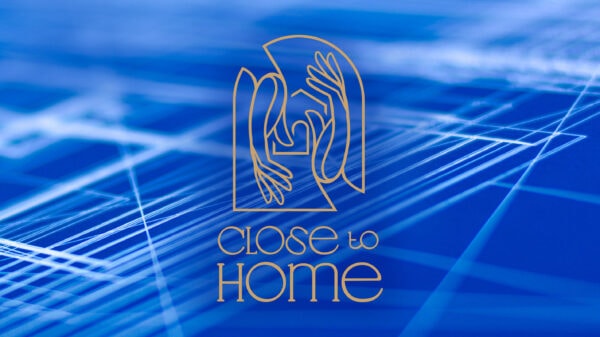Weekly Bible Devotional
“What Is Saving Your Life Right Now? Encountering Others”
May 17, 2020
Scripture for Sunday: Matthew 25:31-46
“When the Son of Man comes in his glory, and all the angels with him, then he will sit on the throne of his glory. 32All the nations will be gathered before him, and he will separate people one from another as a shepherd separates the sheep from the goats, 33and he will put the sheep at his right hand and the goats at the left. 34Then the king will say to those at his right hand, ‘Come, you that are blessed by my Father, inherit the kingdom prepared for you from the foundation of the world; 35for I was hungry and you gave me food, I was thirsty and you gave me something to drink, I was a stranger and you welcomed me,36I was naked and you gave me clothing, I was sick and you took care of me, I was in prison and you visited me.’ 37Then the righteous will answer him, ‘Lord, when was it that we saw you hungry and gave you food, or thirsty and gave you something to drink? 38And when was it that we saw you a stranger and welcomed you, or naked and gave you clothing? 39And when was it that we saw you sick or in prison and visited you?’ 40And the king will answer them, ‘Truly I tell you, just as you did it to one of the least of these who are members of my family, you did it to me.’ 41Then he will say to those at his left hand, ‘You that are accursed, depart from me into the eternal fire prepared for the devil and his angels; 42for I was hungry and you gave me no food, I was thirsty and you gave me nothing to drink, 43I was a stranger and you did not welcome me, naked and you did not give me clothing, sick and in prison and you did not visit me.’ 44Then they also will answer, ‘Lord, when was it that we saw you hungry or thirsty or a stranger or naked or sick or in prison, and did not take care of you?’ 45Then he will answer them, ‘Truly I tell you, just as you did not do it to one of the least of these, you did not do it to me.’ 46And these will go away into eternal punishment, but the righteous into eternal life.”
Notes on The Text:
It is interesting to read familiar scriptures in our current context as they seem to have new relevance and urgency for our time. This is one of those scriptures. It is a well-known parable. In fact, it is a scripture that we often visit in preaching and teaching as it is seen as the blueprint for ministry and discipleship. We read this scripture today about being communities of care and compassion in the context of a pandemic when the needs of our communities are great and our ability to be in community is limited. Care and compassion look very different today than what they looked like just a few months ago. We took so many people that help and serve our communities for granted.
And so with the current context in mind, we read this parable knowing that Jesus used parables to help shift people’s perspective and ideas about life. This parable is about two ways of relating to others in the world represented by two groups: the sheep and the goats. The one group (goats) lives by the values of the world. They don’t share the love of God with others and thus don’t have compassion for their neighbors or the stranger. They keep compassion to themselves and to those they love. Those outside of their familial or social circles are invisible to them. The other group (the sheep) is the one living by the values of the kingdom of God. They are continuing to let God’s love flow through them not just to their family and friends, but also to all the people in need. They live by the principles of Christ’s compassion. The shocking part of the parable is that both groups did not realize that what they were doing was directly done to the king himself. The ones who cared for the needy did not know that it was the king in disguise that they were caring for. In the same way, the ones who did not care for the needy did not know that it was the king in disguise that they neglected. Their motivation was not to please or impress. They were living out their values instead of the values of the world. Faith involved caring for those who were vulnerable in society. It required recognizing that God was to be found in the suffering of our neighbors. Jesus was trying to help his followers understand that it is not enough for nations and communities to say godly things. It was important for them to practice God’s laws of love and compassion. That was the true measure of a community’s success. This was not about earning a spot in heaven or gaining more grace points from God. This life of compassion and care is about living as God intends for us to live.
For Reflection:
One of the toughest challenges of our time right now is coming in contact with other human beings because we know that is how the coronavirus spreads. Social distancing has left us isolated in so many ways and this works against our innate need to be in community. Yet, in a strange way, this time of isolation is helping us reevaluate our assumptions about relationships and human connections. It is helping us to see how much we depend on each other and how much our well-being, physically, mentally, and spiritually depends on others. This could be a time of examining all that we know or think we know about community and human interactions.
In her book, An Altar in the World, Barbara Brown Taylor talks about the practice of encountering others as one of the ways to save our lives. By learning to see the sacred in others, we can see the sacred in ourselves. The journey of life cannot be taken alone. We need companions on the way. The potential for growth through community is tremendous. Yet, community is one of the places we struggle so much. We learn from an early age to fit in and in the process of doing that, we reject or hide parts of ourselves which we deem to be unacceptable or which could potentially prevent us from belonging. Recently, our brothers and sisters in the Asian American communities felt a special threat to their belonging because of the coronavirus and the public misconception (and blame) that the virus came to us from China. This is one of the many manifestations of this kind of fear in community.
How do we heal ourselves and our communities? In his book, Hidden Wholeness, Parker Palmer writes that at the soul level of our existence, there is a hidden wholeness. In the deepest way, we are whole, and that’s the place where we belong to God and we know we belong to God. We remember that we were created in God’s image. Yet, in order to reclaim that wholeness, we need community. We need each other. We need to be intentional to create communities where our souls show up. Our healing depends on being able to recover those parts of ourselves that we rejected and to allow others to do the same.
I think that one of the symbols of this crisis can become a reminder for us of our need to be true and to open with others to drop our social and psychological masks. The masks we are wearing are intended to protect us from the virus, but maybe they can be reminders for us of our common humanity and our common vulnerabilities. What if the masks on our faces can help us connect with the masks that we wear on the inside but that end up separating us from others and from God?
In this time of social distancing, maybe we can take time to learn to be with each other in new ways. Just like we are learning to worship and be together online, what if we learned what it takes to be together in ways that bring healing and wholeness. Barbara Brown Taylor writes, “The hardest spiritual work in the world is to love the neighbors as the self—to encounter another human being not as someone you can use, change, fix, help, save, enroll, convince or control, but simply as someone who can spring you from the prison of yourself, if you will allow it. All you have to do is recognize another you ‘out there’ -your other self in the world -for whom you may care as instinctively as you care for yourself.”
This is what Jesus was inviting his followers to see. They were being challenged to love and serve the stranger in need as a way to connect with their common bond of humanity.
COVID Poem by Laura Kelley Fanucci:
When this is over,
may we never again
take for granted
A handshake with a stranger
Full shelves at the store
Conversations with neighbors
A crowded theater
Friday night out
The taste of communion
A routine checkup
The school rush each morning
Coffee with a friend
The stadium roaring
Each deep breath
A boring Tuesday
Life itself.
When this ends,
may we find
that we have become
more like the people
we wanted to be
we were called to be
we hoped to be
and may we stay
that way–better
for each other
because of the worst.


